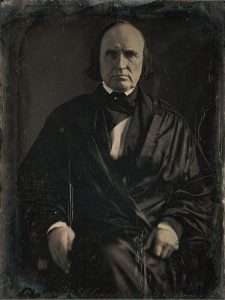The Volokh Conspiracy
Mostly law professors | Sometimes contrarian | Often libertarian | Always independent
Today in Supreme Court History: January 11, 1830
1/11/1830: Justice John McLean takes oath.

Editor's Note: We invite comments and request that they be civil and on-topic. We do not moderate or assume any responsibility for comments, which are owned by the readers who post them. Comments do not represent the views of Reason.com or Reason Foundation. We reserve the right to delete any comment for any reason at any time. Comments may only be edited within 5 minutes of posting. Report abuses.
Please to post comments


Dunn v. United States, 284 U.S. 390 (decided January 11, 1932): notable as the last opinion by Holmes, which he read from the bench (in a weak voice) the day before he resigned at age 90: sustaining conviction for nuisance for keeping liquor (this was during Prohibition) even though it was logically inconsistent with acquittals on the same evidence for selling and unlawful possession
Ransom v. FIA Card Services, N.A., 562 U.S. 61 (decided January 11, 2011): Chapter 13 (non-liquidation) debtor can’t claim “car ownership costs” because did not make loan or lease payments (he owned it free and clear and could claim only “operating costs”)
Brown v. Sanders, 546 U.S. 212 (decided January 11, 2006): affirming death penalty where jury found four “special circumstances” of aggravation, only one of which would have mandated execution, even though two of them were held by appeals court to be impermissibly redundant or vague
Ratzlaf v. United States, 510 U.S. 135 (decided January 11, 1994): defendant transferring $ in amounts less than $10,000 was not aware that bank was required to report transactions of that size or larger and therefore did not violate antistructuring statute, 31 U.S.C. §5234(3); Congress later removed the willfulness requirement; see 6 F.4th 380 n.5
Silkwood v. Kerr-McGee Corp., 464 U.S. 238 (decided January 11, 1984): Those of us of a certain age remember Karen Silkwood, who was repeatedly contaminated with plutonium while working at a nuclear power plant and was killed in a mysterious car crash while on the way to meet a journalist. Her father as administrator of her estate sued the plant operator and won punitive damages under Oklahoma law. Here, the Court holds that the punitive award was not preempted by the liability limiting provisions of the Atomic Energy Act of 1954 or the Price-Anderson Act of 1957.
Brown basically denies something we all think likely in the real world: the more horrible a jury thinks the defendant is, the greater the chance they will find against him.
While captcrisis has accurately reported the bottom line result, he's omitted the holding, which seems designed to respond to your concern:
546 U.S. at 220.
Thanks
McLean was one of the two dissenters in Dred Scott reasoning that since blacks had the right to vote in five states they could obviously be citizens. He also served in Congress, the Cabinet before he was a Supreme Court Justice. Unfortunately, he lived to see the secession of the first seven Confederate states.
He doesn't look like the sort of judge you'd want deciding your sentence.
He probably had to sit motionless for 30 minutes for the daguerrotype.
Could be.
Maybe he had to go to the bathroom.